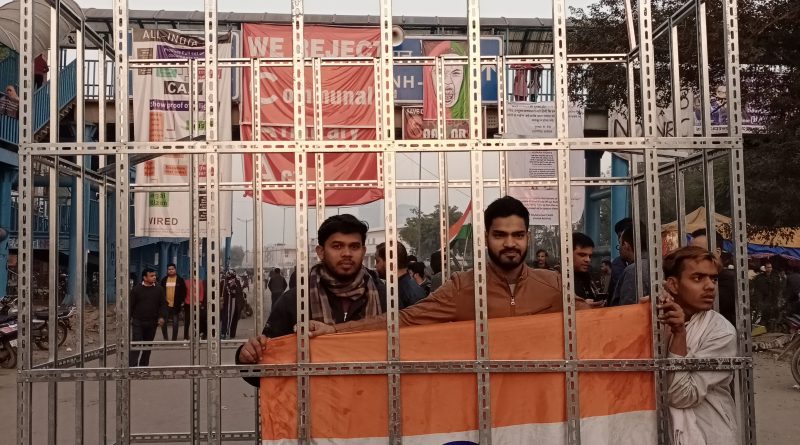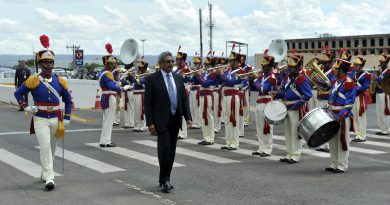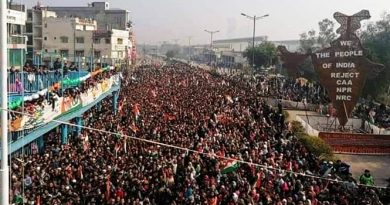The World’s Largest Democracy in Peril: Changing Tides of Politics in India
Hamzah Khan
Staff Writer
India represents the world’s largest democracy, with an approximate population of 1.3 billion people residing in the country. Since the Hindu nationalist Bharatiya Janata Party (BJP) and its leader, Prime Minister Narendra Modi, came into power in 2014, there has been a fundamental reshaping of Indian politics with an increasing trend towards undemocratic governance. Along with initiating an unprecedented assault on press freedom, the government has also targeted the Muslim minority population in India through the Citizenship Amendment Act (CAA) and stripped the only Muslim majority state, Jammu and Kashmir, of its semi-autonomous status, which had been in place since 1950. Crackdowns on the press along with the mass disenfranchisement of minorities go against the values of democracy, putting into question the BJP’s democratic agenda.
According to the 2020 Democracy Report by the V-Dem Institute in Sweden, “India has continued on a path of steep decline, to the extent it has almost lost its status as a democracy.” The report further affirms that in the last ten years, academic freedom in India has declined by 13 percent, while freedom of assembly and protest has declined by 14 percent. The reason for this decline is said to be “the dive in press freedom along with increasing repression of civil society in India associated with the current Hindu-nationalist regime of Prime Minister Narendra Modi.” Furthermore, the annual Democracy Index by The Economist’s Intelligence Unit labeled India as a “flawed democracy” and revealed that it dropped ten places since 2019, now sitting at 51st on the list of democratic countries. The latest report states “The primary cause of the democratic regression was an erosion of civil liberties in the country.”
The current head of government, Narendra Modi, has long been criticized for his Hindu nationalist rhetoric and the policies of the BJP. In 2002, he governed as the Chief Minister of the state of Gujarat through mass anti-Muslim riots, during which 1000 people were killed, The New York Times reports. The United States, United Kingdom, and other European nations subsequently imposed a diplomatic boycott on Modi on the basis that he did little to stop the violence against Muslims in his state, reports The Guardian. This boycott was eventually lifted after he became prime minister in 2014.
Modi has also received criticism for his close ties to the Rashtriya Swayamsevak Sangh (RSS), an extremist paramilitary Hindu nationalist organization, whose goal is to turn India into a “Hindu Rashtra,” or a purely Hindu nationalist state, The Wire reports. The RSS has been behind many attacks against Muslims, including the burning of the Babri Mosque in December 1992, another report by The Wire affirms. In the aftermath of the attack, the RSS incited religious riots across India, leaving 2,000 people dead. The BJP politicized these events, and four years later came into power for the first time.
Since Prime Minister Modi’s election in 2014, RSS vigilantes have been involved in at least 44 cases of lynching of mostly Muslims who were targeted for eating cows, according to Human Rights Watch. These vigilantes have gone largely unpunished and, in some cases, even been encouraged by BJP leaders, says another report by Human Rights Watch. The legitimization of the Hindu Rashtra has started to take shape in India, especially after the 2019 general elections, in which the BJP won a landslide victory and Modi was re-elected Prime Minister.
In August 2019, the Indian parliament voted to revoke Article 370 of the Indian Constitution, which grants the state of Jammu-Kashmir a semi-autonomous status. New Delhi was then given direct rule over the state, Time reports. According to National Geographic, Article 370 was first adopted in 1950 as a compromise between the Indian government and the Kashmiri people. In the lead-up to the 2019 election, the BJP campaigned heavily on the promise of revoking Article 370.
The repeal of Article 370 is especially alarming because this power was meant to reside with the Jammu-Kashmir state legislature instead of the national parliament. However, the BJP bypassed the state legislature by putting Jammu-Kashmir under presidential rule in June 2018 due to increased violence from pro-Pakistan militant groups in the preceding months, reports BBC News. The crisis resulted in nearly 300 deaths, including 40 police officers who were killed in a suicide bombing by a Pakistani-militant group, according to Time.
The night before the announcement was made, the Indian government shut down the internet and placed Kashmir under the direct control of Parliament, Time further reports. Large protests erupted in the streets while the whole state remained under lockdown. Today, over a year later, much of the state is still locked down due to the COVID-19 pandemic while limited internet access has been restored.
In December 2020, Jammu-Kashmir held elections for the first time since the status-quo was changed, which did not go well for the BJP. According to DW, the People’s Alliance for Gupkar Declaration (PAGD), a consolidation of multiple pro-independence political parties, won the majority of seats in the local elections. The turnout was over 51 percent -one of the largest showings in recent history- with nearly six million voters casting ballots. Before the election, the BJP had labeled the PAGD as “anti-nationals” and “looters.” The BJP’s goal of establishing a “new Kashmir” was largely rejected by the Kashmiri people, showing that India’s democratic infrastructure has not been entirely eroded and can still be built upon.
The lockdown of Jammu-Kashmir involved the longest internet shut down in history, with 213 days of no access to the outside world. This placed India as the only democracy with such a high record of internet shutdowns, according to BBC News. The internet was shut down 95 times in 2019, with 55 of them in Jammu-Kashmir, and 134 times in 2018. The government has instituted internet lockdowns many times in response to protests in large cities, claiming that this action was to prevent further violence. Others believe that they are “strategically used to clamp down on dissent,” reports DW.
Another incident of suppressing protesters occurred in late 2019 mass protests erupted all over India in response to the parliament’s approval of the CAA. This law prohibits migrants and asylum seekers of Muslim faith from Pakistan, Afghanistan, and Bangladesh from becoming Indian citizens. This is the first citizenship law in India’s history that discriminates against a certain group based on religion. The government cracked down on these protests and labeled them as “anti-nationals” or unpatriotic. The police stormed two Islamic universities where they were recorded beating students protesting the new law, according to Time. At least 23 people died in the anti-CAA protests, most of which took place during altercations with the police.
Delhi, India’s capital, was at the epicenter of public outburst and violence, where almost 53 people died in a clash between Muslims and Hindus in the CAA protests. According to Foreign Policy, the police blamed the violence on Muslim protesters and accused them of trying to overthrow Modi’s government. Amnesty International released a report on the event stating that the police reacted poorly to riots and did not arrest Hindu nationalists who incited the mob through hate speeches on the streets of Delhi right before the violence broke out.
According to BBC News, certain members of the police force were involved in killing protesters allowing mobs to target Muslim homes and businesses. Most of those arrested in the aftermath of the violence were Muslim protesters and activists, while many Hindu nationalists accused of inciting the violence were not apprehended. Instead of condemning the actions of the police, Modi’s government applauded them, BBC News reports.
This kind of crackdown on dissent drew many comparisons to the Chinese government’s brutal repression of protests in Hong Kong, although India’s death toll was much higher, reports India Today. Similar to many authoritarian governments, the BJP labels protesters as unpatriotic and justifies their repression by claiming protests threaten national security. The government shut down the internet whenever they please, significantly crippling activist mobilization and the public’s access to information.
In addition to the CAA, the BJP leadership also expressed interest in implementing a National Registry of Citizens (NRC) throughout the whole country, although the law currently only exists in the state of Assam. The NRC was created to keep track of the population of citizens and illegal immigrants in Assam. In 1971, thousands of refugees from neighboring Bangladesh, a Muslim majority country, fled across the border to Assam during the Bangladesh Liberation War. Anti-immigrant sentiment led to the creation of a registry that allowed anyone who came to Assam before March 1971 to become a citizen, whereas immigrants arriving afterward were to be deported.
The NRC was not enforced until 2015, when the government of Assam reauthorized it and called for the deportation of all illegal immigrants, according to India Today. Many people did not have any documentation that could prove they were born in Assam and were rightful citizens. According to Al Jazeera, 1.9 million people were left out of the NRC and did not receive citizenship, more than half of whom were Muslims. Assam also began building detention centers to house the undocumented people. Ultimately, many people who appealed to courts were declared foreigners without a trial.
About 500,000 people that the NRC excluded from its policy are Hindus. Although they are not citizens under the NRC, they can reapply for citizenship and have their rights restored under the CAA. According to The Times of India, the BJP leaders of Assam have already said the Hindus not included in the NRC will receive citizenship whereas the nearly one million Muslims who remained stateless cannot reapply for citizenship and will either be detained or deported. If the NRC in Assam is implemented on a national level, the CAA could effectively strip millions of Muslims of Indian citizenship and render them stateless.
Although Modi’s government has halted the implementation of the NRC, other anti-democratic laws put into question India’s status as a democracy. India was founded on ideals of equality for all citizens regardless of religion; however, the rise in Hindu nationalism stoked by the BJP threatens India’s democratic future, where a large minority population has no say in the laws that govern its wellbeing.
The BJP has also attacked the freedom of the press in India, the worst examples of which can be found in the state of Uttar Pradesh, where the state’s Chief Minister Yogi Adityanath has often been criticized. According to the Committee to Protect Journalists (CPJ), since the 2019 elections, the crackdown on the press has monumentally worsened. Amitabh Bhattarcharya, an Indian journalist, stated, “[The BJP] feels it can do anything with impunity, just because it has won two elections in a row,” the report affirms.
Multiple journalists have been unfairly detained on trumped-up charges of conspiracy and sedition. In many cases, journalists have been attacked by riled-up mobs while the police refused to protect them. In certain cases, some police officers have also been involved in detaining and torturing journalists, CPJ furthers. Since the beginning of the COVID-19 pandemic, the government has re-implemented an old law called the Epidemic Diseases Act which allows state governments to punish media organizations for spreading misinformation, according to Indian Express. State governments in Uttar Pradesh, Gujarat, and other BJP-led states have effectively weaponized this into a new “sedition law” to criminalize dissent.
According to The Wire, Adityanath’s government has also been accused of extrajudicial killings of protesters, activists, and journalists. These killings have prompted the UN Office of the High Commissioner for Human Rights to send a letter to the Indian government drawing attention to the unlawful killings of people by authorities in Uttar Pradesh. The letter expresses how members of the UN Office “are extremely concerned about the pattern of events: individuals allegedly being abducted or arrested before their killing, and their bodies bearing injuries indicative of torture.”
Without a free press, no country can claim to be a functional democracy as the government is free from accountability. The recent crackdown on journalists has created a fear in the minds of anyone wishing to criticize the government. The BJP’s nationalist agenda has left many independent international observers concerned about India’s status in the free world. The 2020 Democracy Report states that “the first steps to autocracy involve eliminating media freedom and curtailing civil society.” The BJP’s treatment of minority groups like Muslims threatens the democratic future of India. While the Kashmir elections are promising, unless further changes are brought about, the Hindu Rashtra initiative may be realized sooner than expected, putting into peril the world’s largest democracy.



